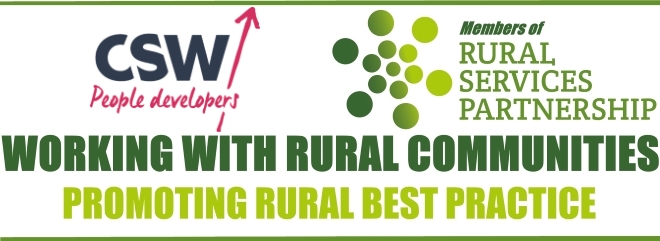T: 01822 851370 E: [email protected]
Visit RSN Survey about life in rural England to find out more.
How Covid-19 has changed the way #Focus5 works

#Focus5 is funded by the European Social Fund and The National Lottery Community Fund to support 920 young people across Devon, Plymouth, Somerset and Torbay including those with mental health issues, special educational needs and disabilities (SEND) and care leavers. Our project helps the most socially isolated young people who are not in education, employment or training (NEET) or at risk of becoming NEET.

Our 13 key workers are strategically placed around the region, providing the font line work of the project. Before Covid-19 this would include a lot of face-to-face interactions with our young people. This would have taken the form of home visits or meetings at neutral venues like coffee shops; whatever worked best for the young person. The #Focus5 project has been lauded for its personal touch and the success of the project has been, in part, due to the ability of our key workers to mould the provision around the individual needs of their cohort.
North Devon is one of the project’s more rural regions, with 3 key workers designated to helping young people there. All three (and the rest of or key workers for that matter) now must adhere to the social distancing rules whilst at work. This means remotely working with our young people and #Focus5 have the technology to do this. Our team have laptops and phones, so they can make video calls and traditional phone calls and text messages. The experience of our three North Devon key workers is slightly varied.
One key worker, Grace, has recently returned to project and is currently building a new case load. Grace has found that her new cohort are very receptive to using technology, with only one new starter being a bit difficult to engage with at times. However, our other key workers are finding it more of a challenge to engage a cohort who were used to meeting in person. That is okay though, as our key workers are innovative professionals with a wealth of experience. They are meeting this challenge head on and finding new ways to connect with our young people.
Our key workers have found that video calls can work best where the young person has the option to turn off their camera. This allows the young person to read the visual cues of their key workers whilst not feeling self-conscious about appearing on camera. One key worker has found that changing the backdrop can help to build rapport and stimulate conversation. Whilst it can be difficult to build a deeper connection with the participants, aspects of our work are being progressed at a quicker rate. CV’s are being developed faster, meaning our young people are getting ready to apply for work.
Our team are wondering when everything will revert to how it was, but until then we will learn and implement new ideas. Some of these will form the ‘new normal’, allowing us to be even more flexible in the future.



